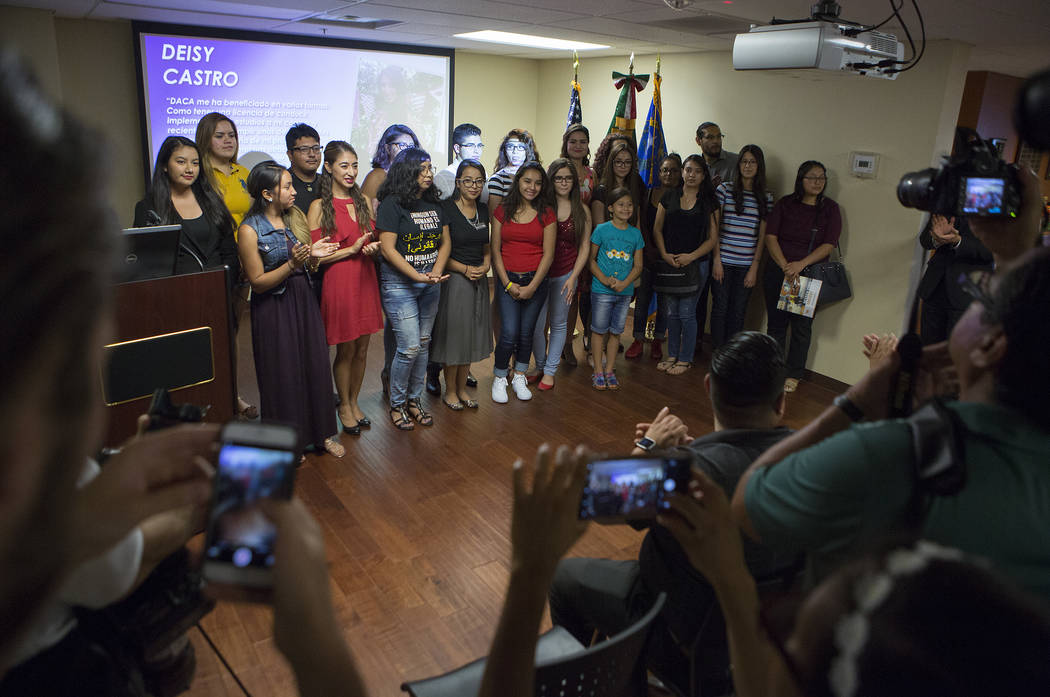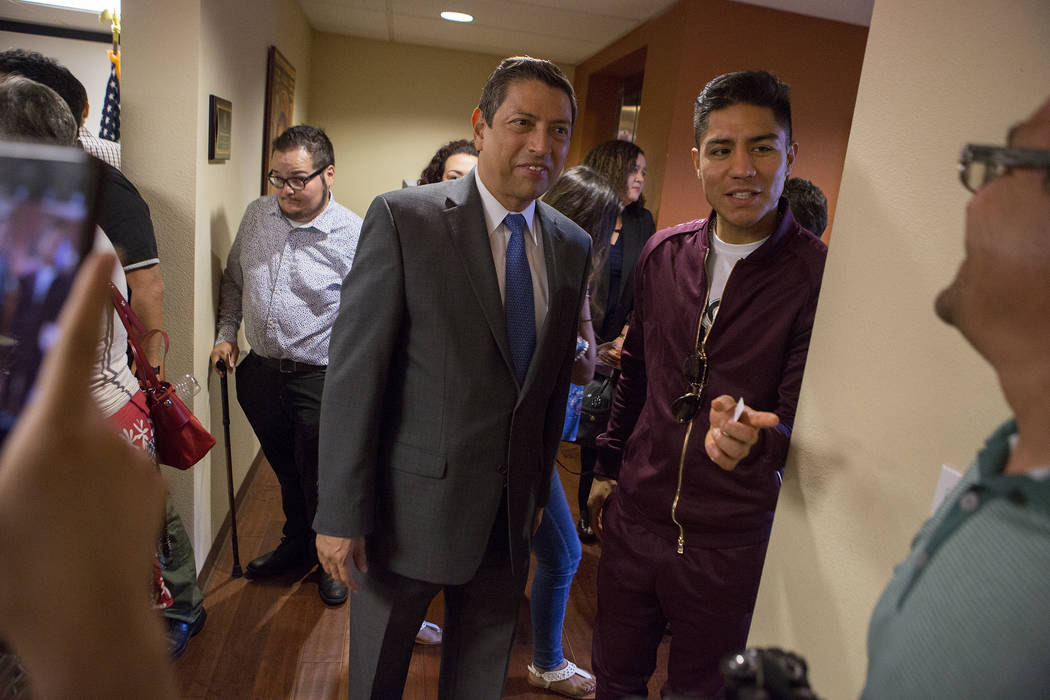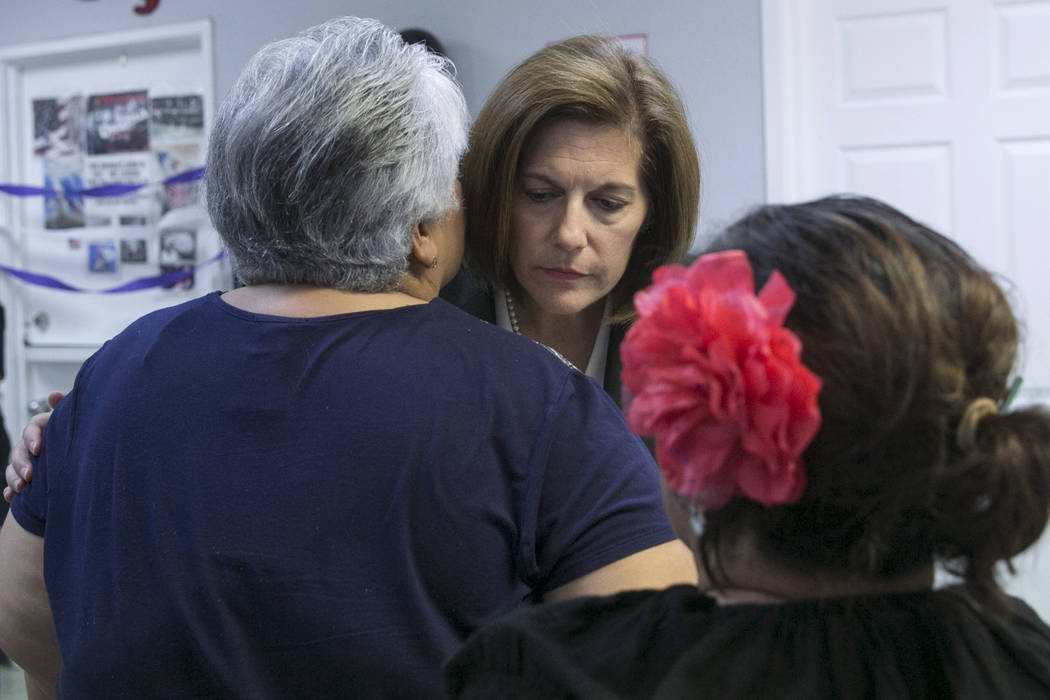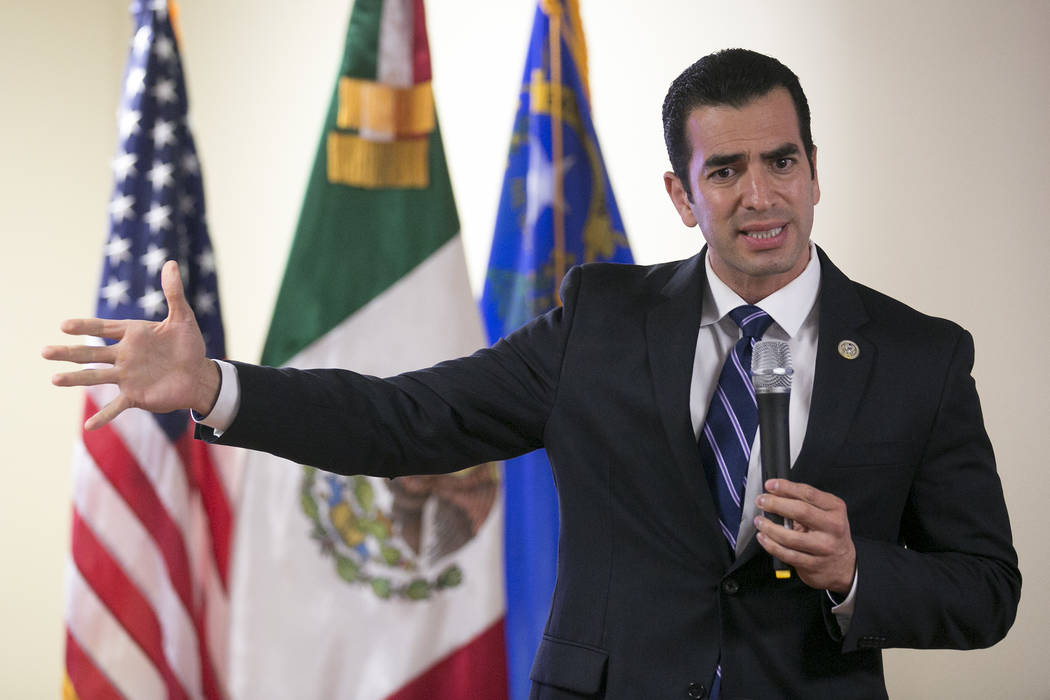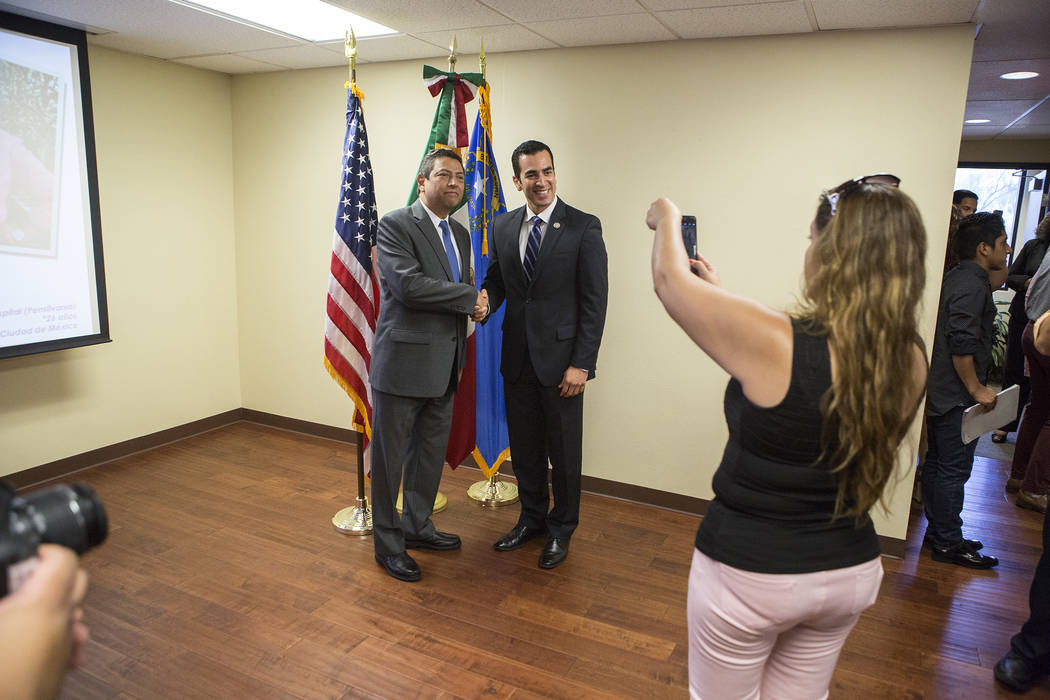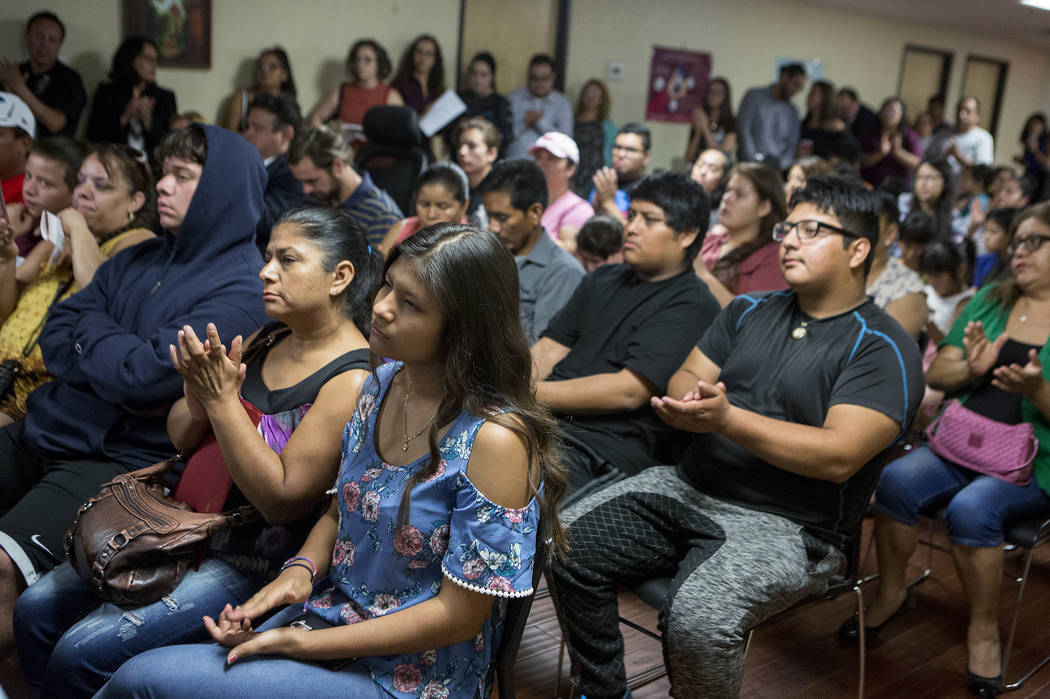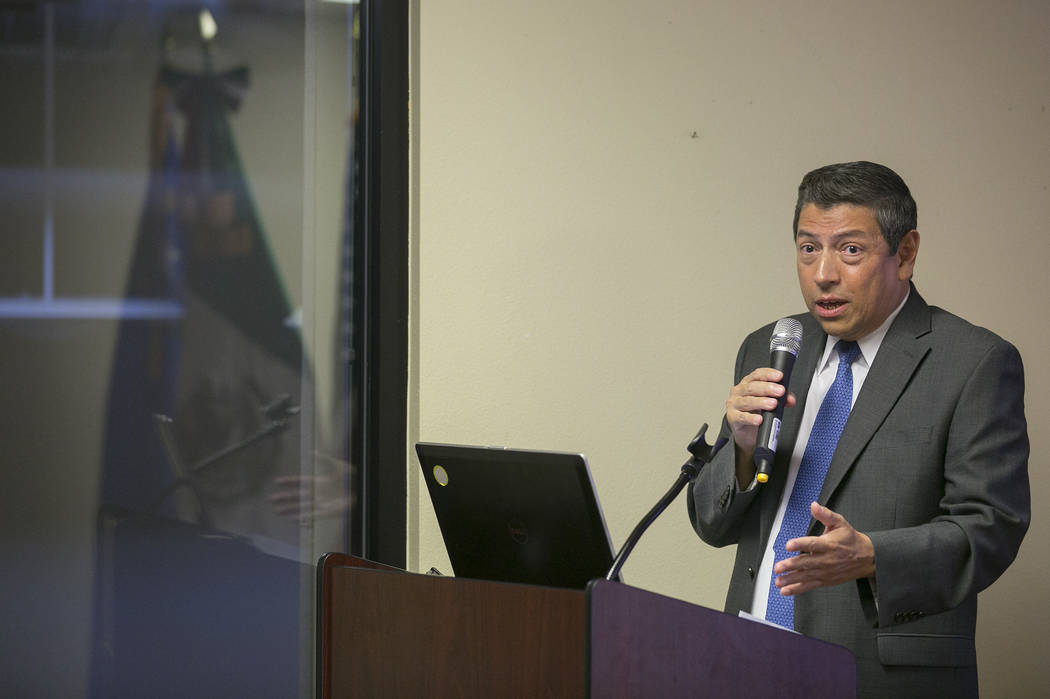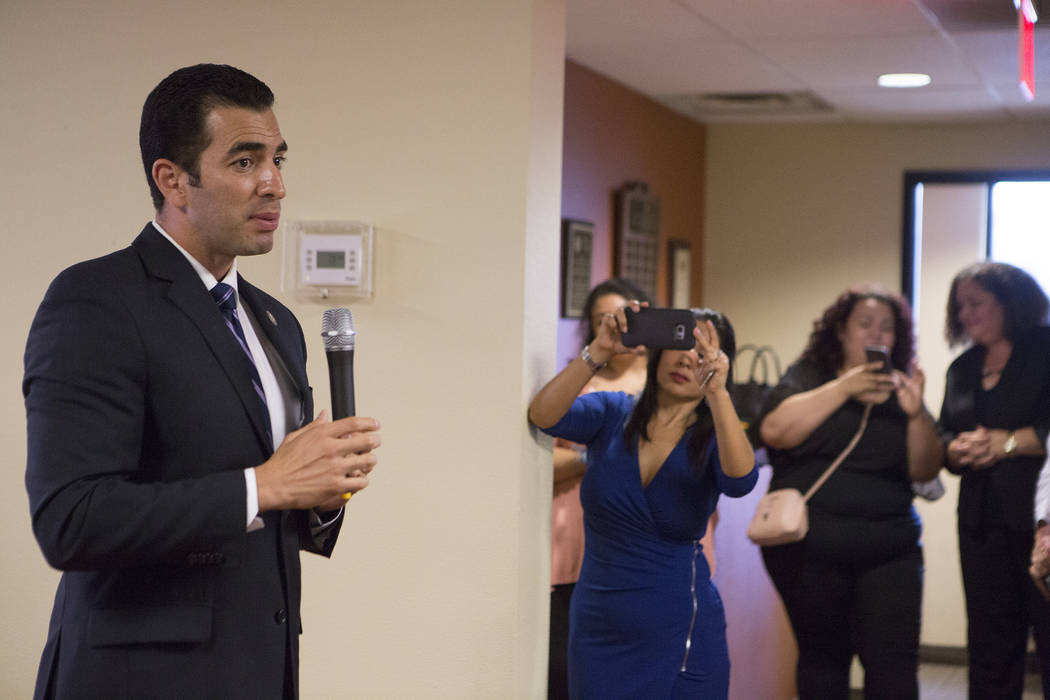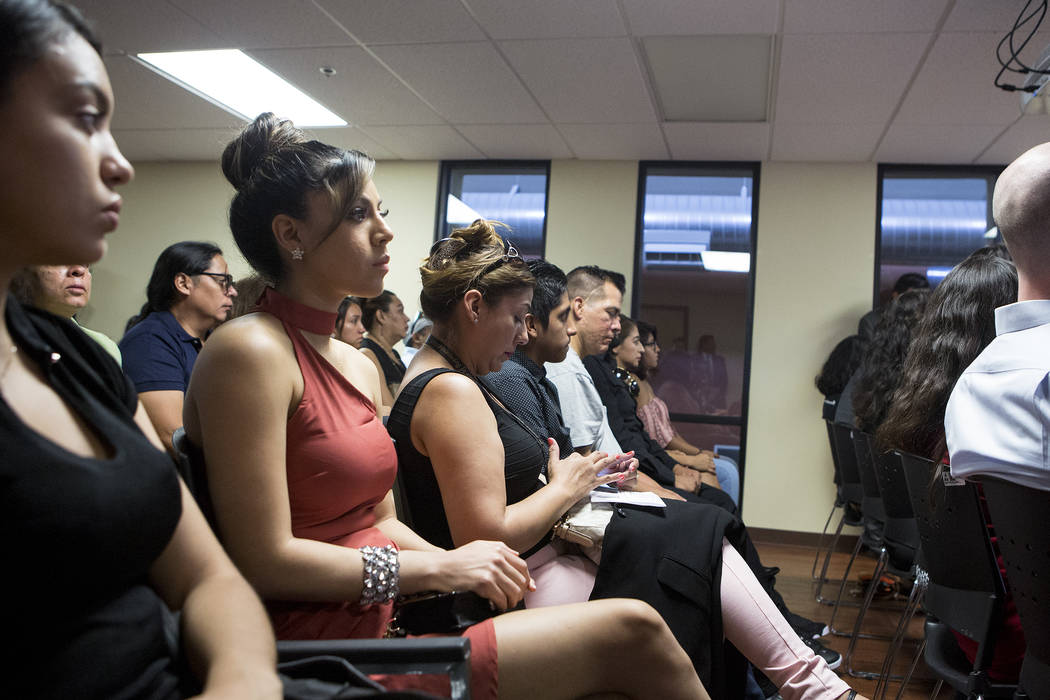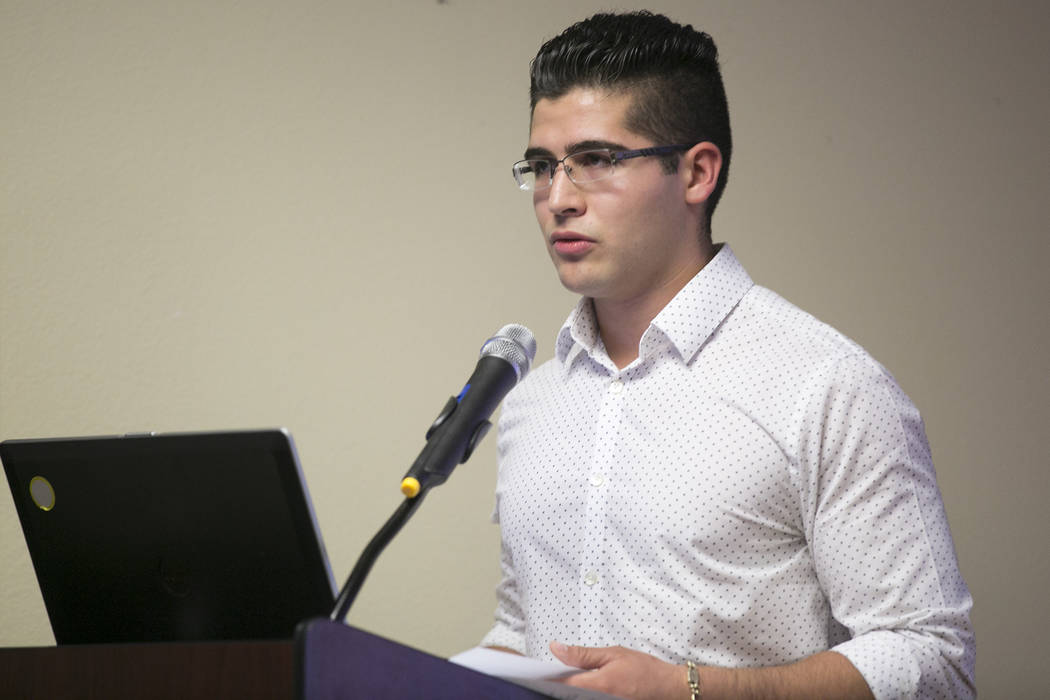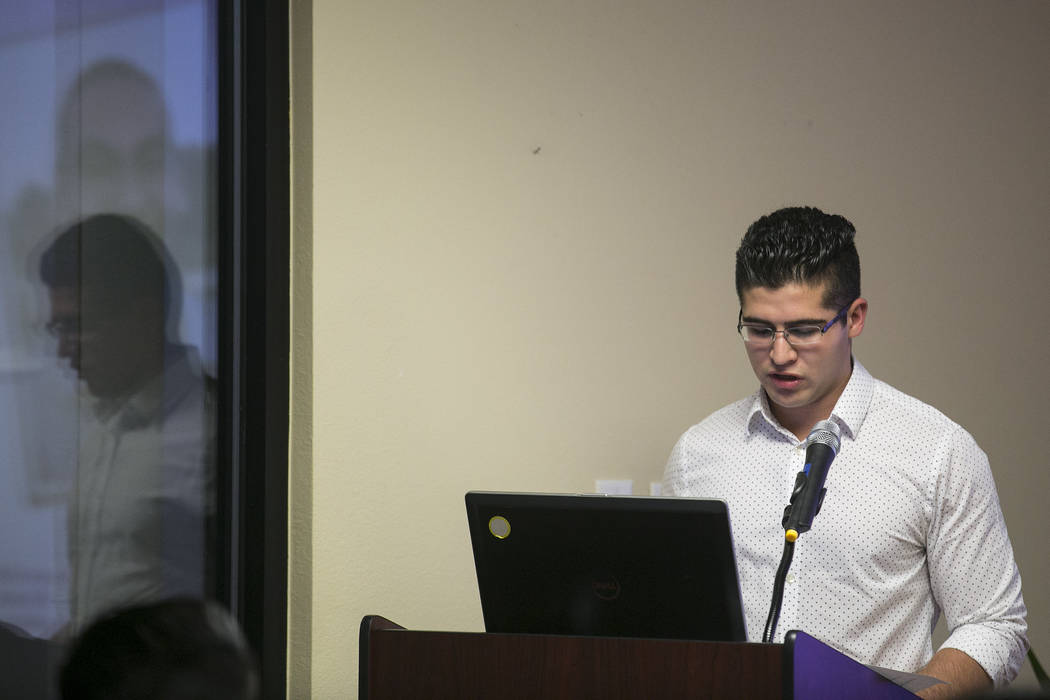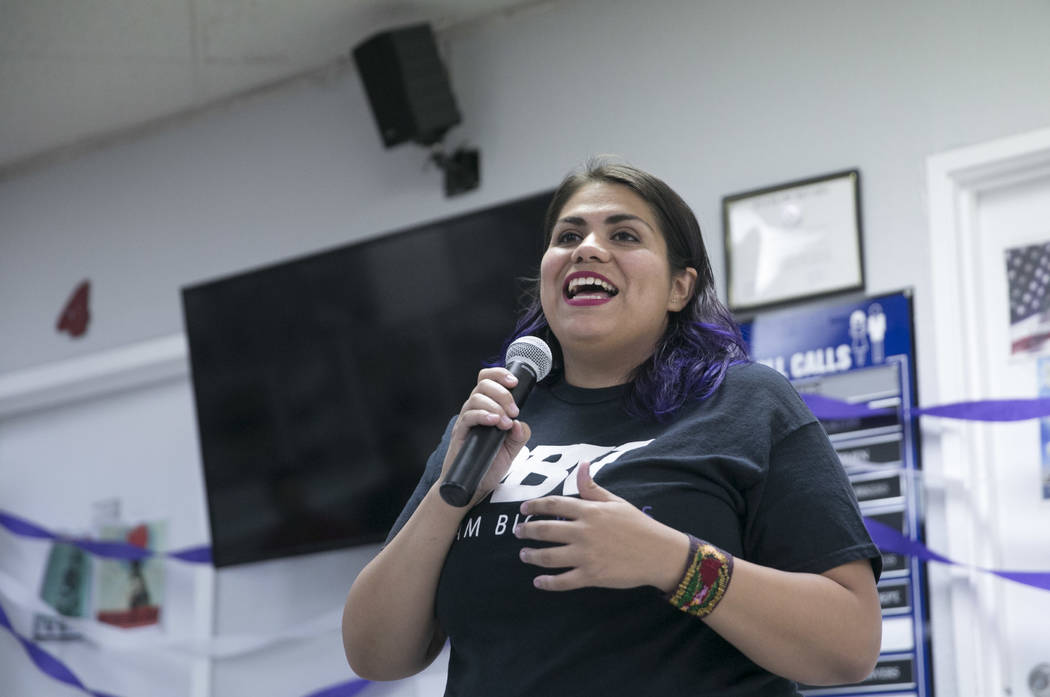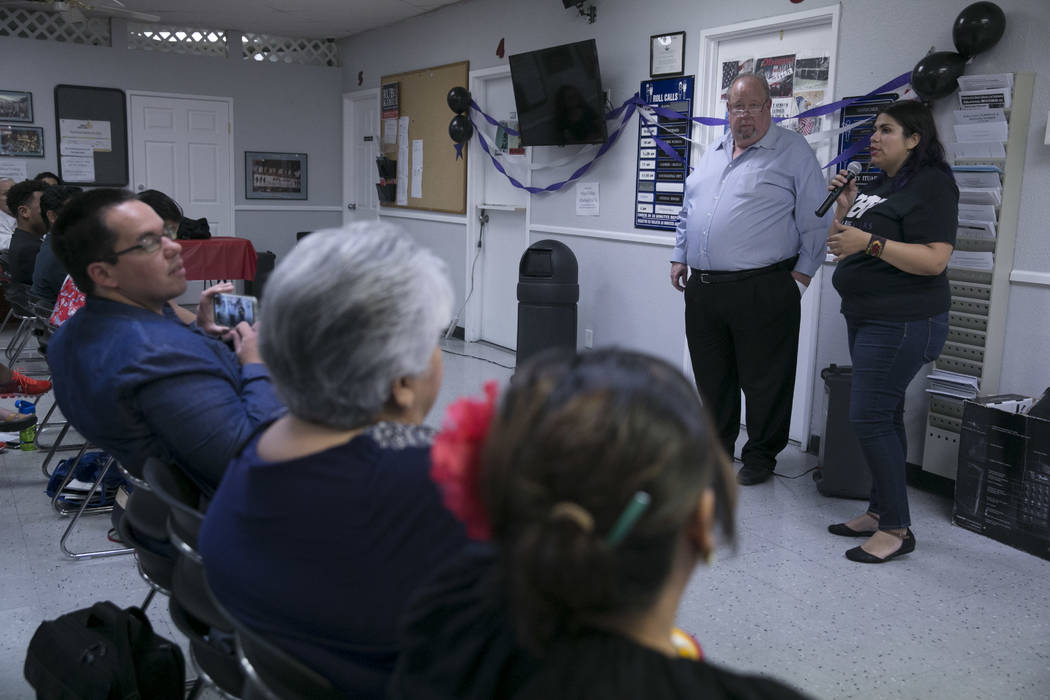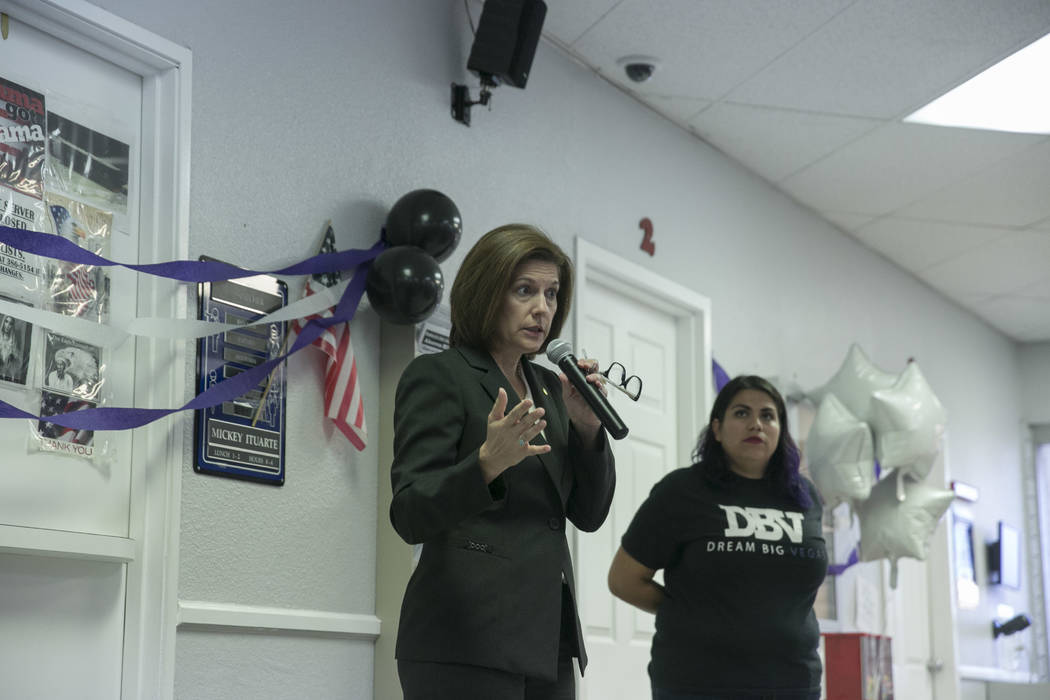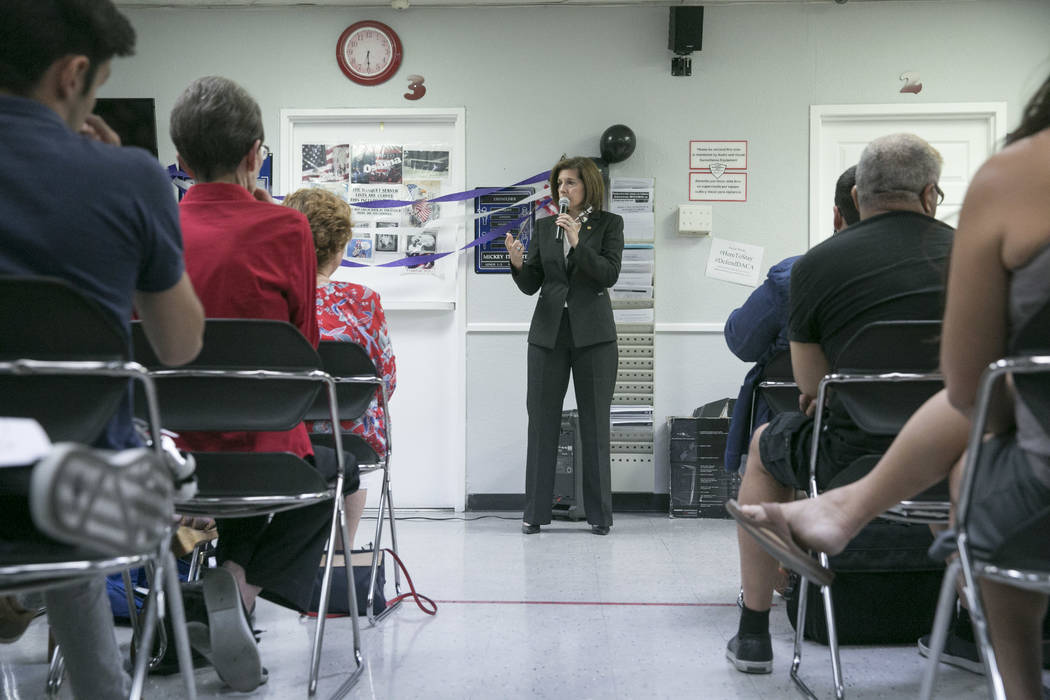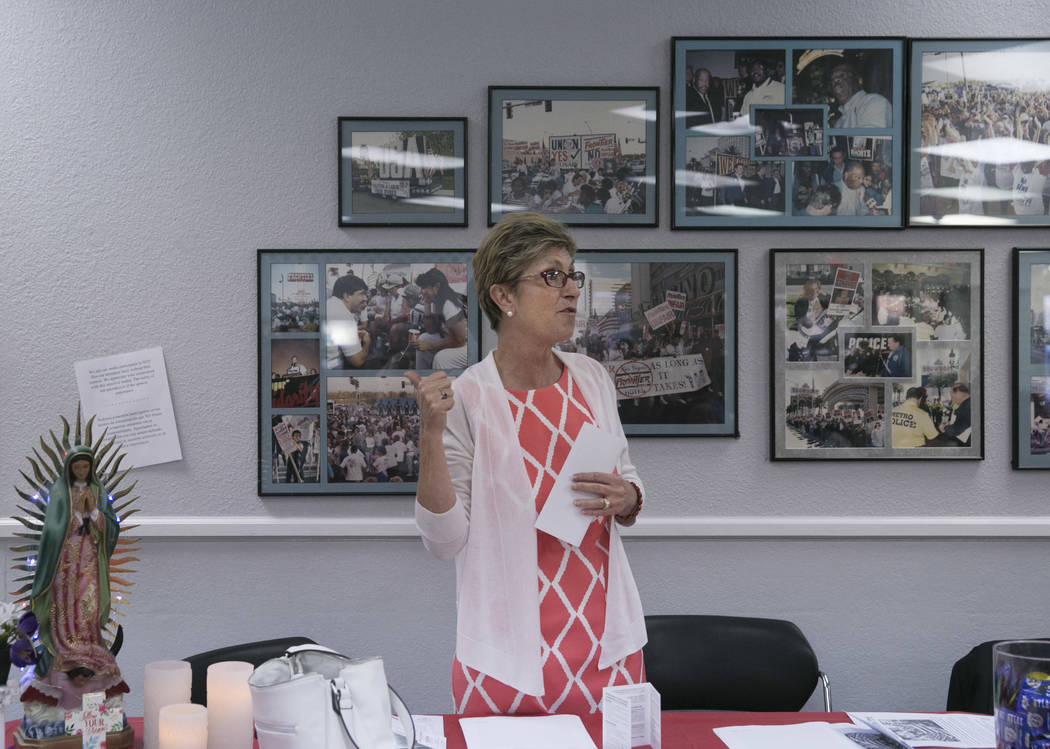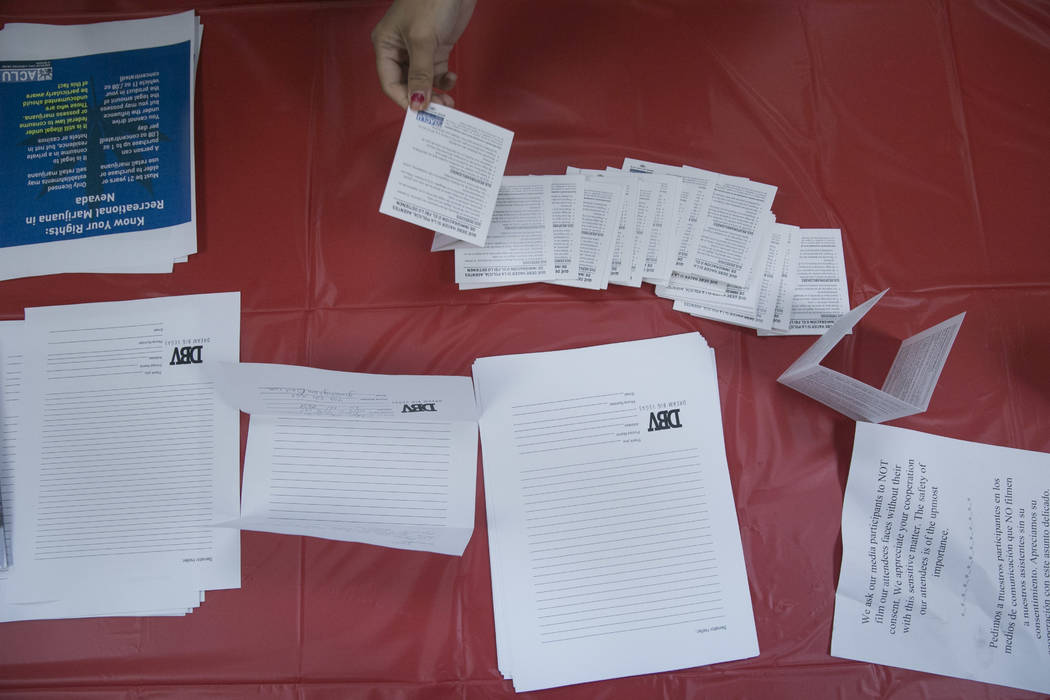Forum participants back Deferred Action for Childhood Arrivals program
If President Donald Trump doesn’t begin phasing out the Deferred Action for Childhood Arrivals program in the next 21 days, 10 attorneys general nationwide have promised to sue the federal government.
Meanwhile, DACA recipients and American citizens with immigrant family members from across the West Coast are stationed at the Stratosphere to learn how they could use their stories to shift opinions in DACA’s favor.
“What we believe is Trump is going to fight us left and right,” Angelica Salas, executive director for the Coalition for Humane Immigrant Rights based out of Los Angeles, told about 50 young adults in a session Tuesday afternoon on Trump’s budget proposal. “But we can educate our community. That’s what we’re here for — to have a conversation.”
Under DACA, undocumented immigrants are eligible for a work permit, Social Security number and driver’s license, and they are protected from deportation. People who arrived in the United States before they turned 16, and who weren’t older than 31 as of June 15, 2012, can apply for DACA status.
U.S. Citizenship and Immigration Services had accepted about 14,000 DACA applications in Nevada as of March , the Migration Policy Institute reports.
The three-day training at the Stratosphere, one of several the Fair Immigration Reform Movement will lead across the West Coast this month, was a celebration for Erika Castro, senior organizer for immigration reform with the Progressive Leadership Alliance of Nevada.
But five years ago, before receiving protection under DACA, she said she wouldn’t have shared her story.
“The hard part about it is that we don’t really know what’s going to happen,” Castro said.
Joseline Cuevas, 17, started her senior year Monday at Canyon Springs High School in North Las Vegas. She attended the workshop Tuesday after receiving DACA protection about two years ago.
“I knew that this was going to change me,” said Cuevas, who remembers sprinting to the mailbox, ripping open the envelope that held her DACA acceptance and bursting into tears. She now volunteers for the Progressive Leadership Alliance of Nevada.
For now, DACA protects her from deportation — though, because she can’t read or write Spanish, and knows her birthplace in Mexico only from photographs, she fears she could be sent back to the place she left at 3.
And she chokes up thinking that her parents, who are undocumented, could be sent away and separated from her and her little brother.
Last school year, she took up public speaking through her school’s debate team. Monthly, she shared her story through an oral presentation.
“I would always tell people, ‘They pick us up, they take us somewhere into a place where we don’t know,” she would recite of deporting young immigrants like herself. “And it’ll make us not know ourselves.”
Anniversary celebration
At two events at the Mexican Consulate of Las Vegas and the Culinary Local 226 headquarters, DACA recipients, local advocates, attorneys and politicians answered the community’s questions on DACA’s future and gave advice to program recipients on college affordability, an issue for DACA recipients, who aren’t eligible for federal financial aid.
“You have to ask and say, ‘I need help,’” Mayra Sierra, a University of Nevada-Reno graduate and now employee, said Tuesday to a group of around 100 at the Mexican Consulate. “I’m not undocumented. I’m DACA-mented.”
At the Culinary union headquarters, Dream Big Vegas hosted local college representatives, immigration lawyer Peter Ashman and U.S. Sen. Catherine Cortez Masto, D-Nev., to discuss DACA’s impact on the state.
“If they just sat down with them like I do and get to know these families, get to know the parents, get to know the kids, they would know they’re hard-working,” Cortez Masto said. “Some of these kids are working two jobs just to put themselves through school, get an education.”
Those who support the petition to cut DACA, like Terry Ochal, deputy political director for the Clark County Republican Party, say the program is unconstitutional.
“What I think we should do for a phasing-out process is possibly offer an amnesty program,” Ochal said, adding that skilled workers who speak English and work in the states could, through such a program, become citizens.
Contact Jessie Bekker at jbekker@reviewjournal.com or 702-380-4563. Follow @jessiebekks on Twitter.



